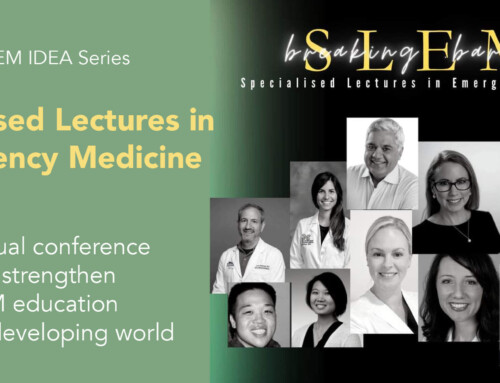 Family presence in the ED resuscitation of a dying patient is a controversial topic. Some surveys suggest that families favor this practice and would repeat it again in a similar situation.
Family presence in the ED resuscitation of a dying patient is a controversial topic. Some surveys suggest that families favor this practice and would repeat it again in a similar situation.
An article in Critical Care Medicine examines the impact of family presence on the ED personnel’s actions, rather than the impact on the families themselves. Second and third-year EM residents were randomized into paired teams in simulation exercises. All resuscitations involved a cardiac arrest patient. Each team was exposed to one of three types of resuscitation groups:
- No family witness
- Non-obstructive family witness (quiet person) – quiet crying and conversation with social worker
- Overtly grieving family witness – loud crying, attempts to hug patient during resuscitation
Outcome measures
- Length of resuscitation attempt
- Time to critical events (eg. intubation)
- Recognition of potential drug administration error
Results
- n = 60 residents
- The timed outcomes were compared across the 3 groups using a one-way analysis of variance.
- There was no difference across the 3 groups when comparing # of minutes to CPR, to intubate the patient, and to making a death pronouncement.
- “Overt reaction witness” group: Residents took longer to deliver the first defibrillation shock than the other 2 groups. Also residents delivered fewer shocks overall than other 2 groups.
Bottom line
Mortality improves with PROMPT defibrillation for ventricular fibrillation patients. Delays contribute to worse outcome. This study suggests that overtly-grieving family witnesses during the resuscitation may negatively impact process outcomes of the actual resuscitation.
Of course because this study was conducted on residents (not attendings) and on a human simulation (not on actual patients), more studies need to confirm these preliminary findings.
Fernandez R, Compton S, Jones KA, & Velilla MA (2009). The presence of a family witness impacts physician performance during simulated medical codes. Critical care medicine, 37 (6), 1956-60 PMID: 19384215




